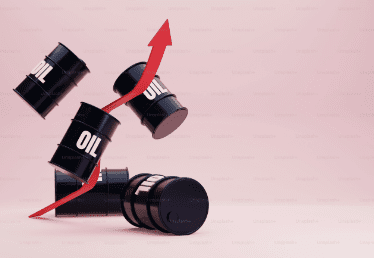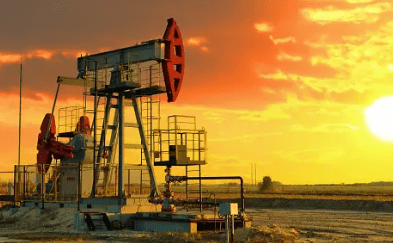The price of oil is like a roller coaster—it goes up and down based on what’s happening in the world. Right now, it’s climbing again, and this change is causing people to pay more for gas and everyday items. Let’s break it down in a way that’s easy to understand!
What’s Happening with Oil Prices?
Recently, the price of Brent crude oil increased to about $75.12 a barrel. This is close to its highest point this month! The increase is mainly due to two big reasons: worries about conflict in the Middle East and new plans for economic growth in China.

When there are issues like air strikes or conflicts in places like Lebanon, oil prices can spike. That’s because many countries depend on oil from the Middle East. If the supply is threatened, people worry they won’t be able to get enough oil, causing prices to rise. So, the news of Israeli air strikes has made people anxious about what might happen next.
On the other hand, there’s some good news coming from China. The Chinese government is rolling out a huge economic plan to help boost its struggling economy. This plan is a big deal, and it’s impacting oil prices too!
China’s Economic Stimulus
China has announced its largest economic boost since the pandemic. This includes cutting interest rates on new and existing mortgages. In simple terms, it means that people can borrow money at lower rates, making it easier for them to buy homes and spend money.
For many years, China was building homes and entire cities at a breakneck speed. However, they built too many too fast, which caused problems. Now, many houses are empty, and some people have lost their life savings because of this. It’s like building a giant playground, but no kids want to play there!
Now, the Chinese President Xi Jinping is encouraging investments in things like green energy, electric vehicles, and advanced technology. They believe these investments can help the economy grow and get back on track.
What Does This Mean for Oil Prices?
When China invests heavily in its economy, it often needs more oil for transportation, manufacturing, and construction. This demand can push oil prices higher. For a while, oil prices were really low—about $70 a barrel—because of worries about the Chinese economy. But now, as China takes steps to revive its economy, oil prices are rising.
A Closer Look at China’s Situation
China’s economy has been struggling, and that’s not a good sign for the world. The country’s rapid growth in building homes and businesses hit a wall. Many real estate companies have faced bankruptcy because they overbuilt. Imagine a big store full of unsold toys; that’s how China feels about its empty buildings.
To turn things around, China is trying many different strategies. They’re letting local governments buy up some of these empty homes and even reducing how much money people need to save to buy a house. But these changes have been small, and many people are waiting to see if they will be enough.
The new stimulus package is more significant than the previous measures. It shows China is serious about getting its economy back on track. But will it be enough to change the game? That’s something everyone is watching closely.
Global Effects of China’s Actions
As China moves to boost its economy, other countries are also paying attention. For instance, Europe and the U.S. have accused China of making too many cars and selling them at very low prices, which creates unfair competition. This could lead to trade tensions, meaning countries might impose taxes on each other’s goods, making everything more expensive.
Additionally, there are ongoing worries about supply from OPEC+, a group of oil-producing countries. They have been careful about how much oil they produce, and if they decide to increase production, it could affect prices. While oil prices have risen recently, they are still lower than they were for most of last year, when a barrel of oil cost over $80.
How Does This Affect Us?
When oil prices rise, it doesn’t just mean higher gas prices; it affects many parts of our lives. Think about how much we depend on oil for everything—from the cars we drive to the products we buy. Higher oil prices can lead to increased costs for goods in stores, making life a little more expensive for everyone.

So, as we watch oil prices climb, it’s essential to understand how interconnected everything is. What happens in China or the Middle East can directly affect our wallets here at home.
What’s Next?
Looking ahead, people will be watching closely to see how China’s new stimulus plan works out and how the situation in the Middle East develops. Will China’s plans lead to a stronger economy and more oil demand? Will tensions in the Middle East calm down?
The answers to these questions could determine whether oil prices continue to rise or start to fall again. For now, it’s a waiting game, and everyone is hoping for the best.








